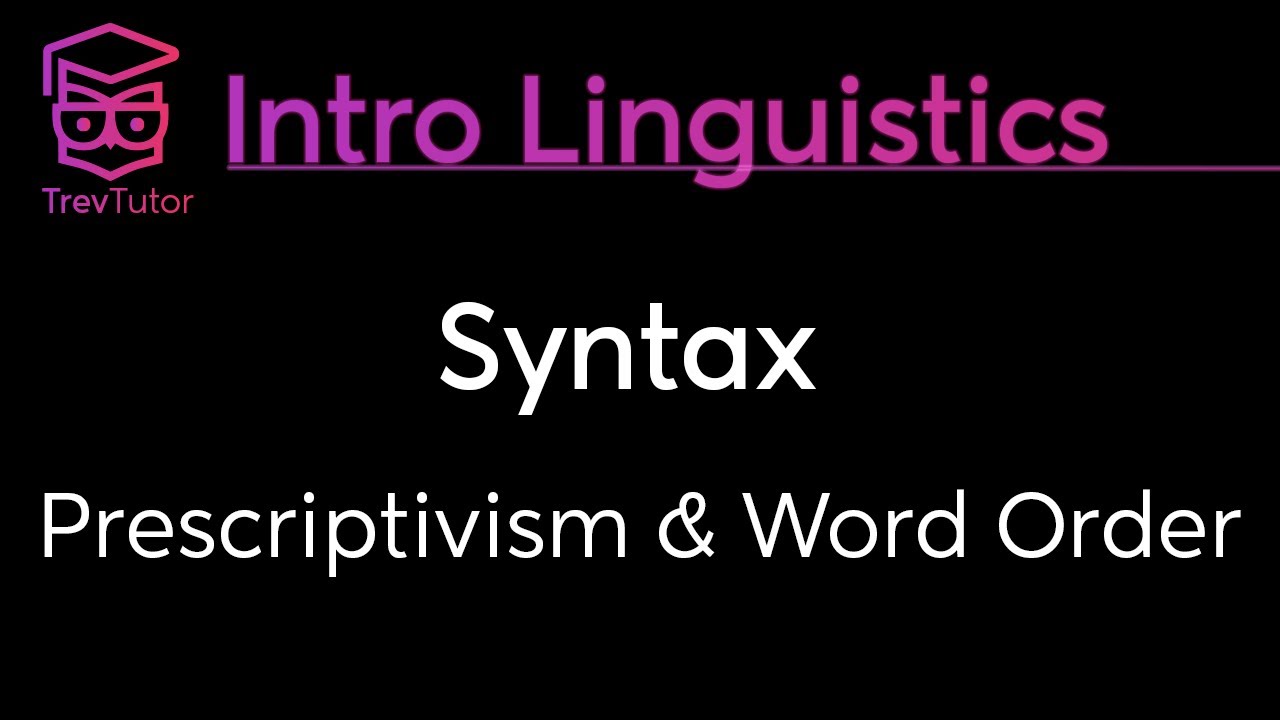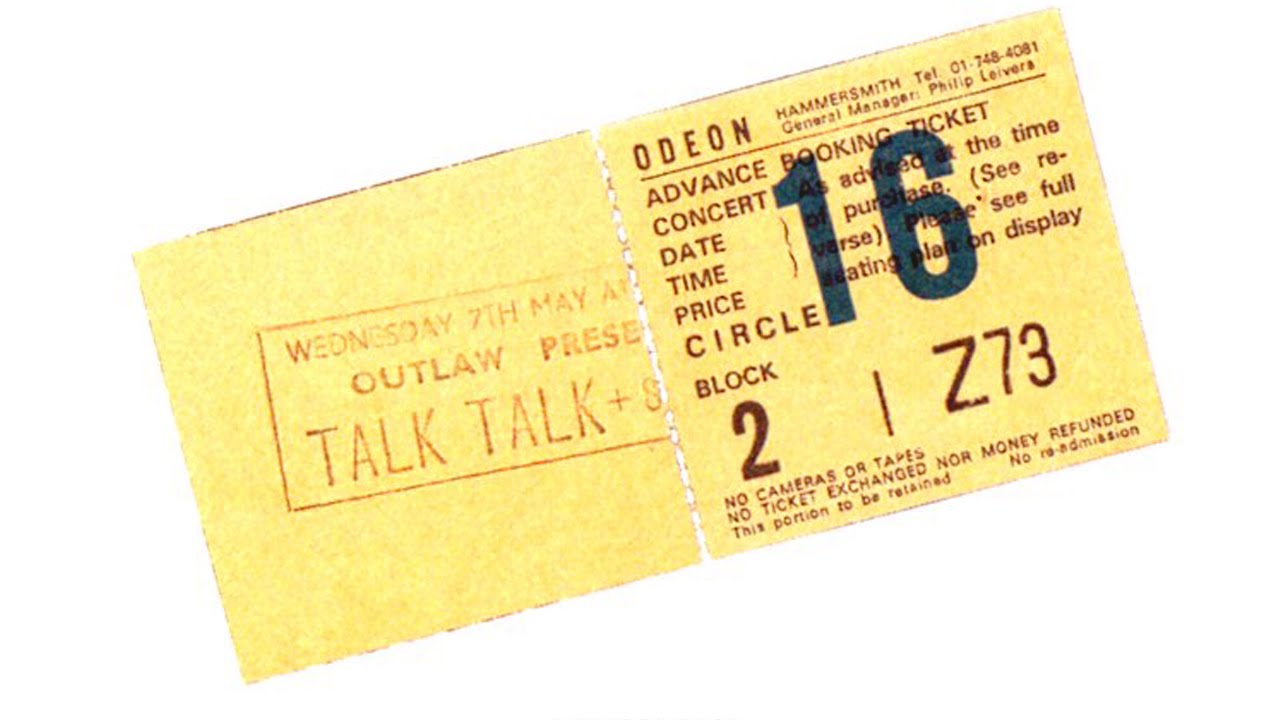TheTrevTutor
In this video we look at word order in languages, grammaticality, prescriptive and descriptive grammar, as well as go over functional categories and lexical categories.
LIKE AND SHARE THE VIDEO IF IT HELPED!
Support me on Patreon: http://bit.ly/2EUdAl3
Visit our website: http://bit.ly/1zBPlvm
Subscribe on YouTube: http://bit.ly/1vWiRxW
Like us on Facebook: http://on.fb.me/1vWwDRc
Submit your questions on Reddit: http://bit.ly/1GwZZrP
Hello, welcome to TheTrevTutor. I’m here to help you learn your college courses in an easy, efficient manner. If you like what you see, feel free to subscribe and follow me for updates. If you have any questions, leave them below. I try to answer as many questions as possible. If something isn’t quite clear or needs more explanation, I can easily make additional videos to satisfy your need for knowledge and understanding. .




Can you make some videos on morphology in depth please ? Not introduction to morphology but thoroughly detailed explanation. thanks for the incredible efforts you make to help others. ☺
This guy is hilarious. Informative, too. I can't believe more people didn't continue from the first video.
Your explanations are clear and easily understood so thank you very much for the hard work you put into it !
You might think they're lower class if they say ain't? …
It seems that all the word orders are possible in Sinhalese.
Look the example "James threw the ball" (I am not using the Sinhalese script here):
James visi kalaa bolaya – SVO
James bolaya visi kalaa – SOV
visi kalaa James bolaya – VSO
visi kalaa bolaya James – VOS
bolaya James visi kalaa – OSV
bolaya visi kalaa James – OVS
All these forms are valid. But I think SOV is more common in written Sinhalese.
I think this is a wonderful feature but in some rare situations where the nominative of both the subject and object does not inflect in the case that the object is in, this this can result in ambiguous understandings and maybe that's why SOV is more commonly used in writing.
i.e. : "bolaya" (the ball) in the example is in accusative case but it's the same word in both nominative and accusative cases.
So, we can't determine whether it's the subject or the object.
But, "James" is in nominative case. (It changes in other cases like "Jameswa" in accustive, "Jamesta" in dative etc.)
So, we know James is the subject here.
Please let me know if you know other languages like this!
You sir are an angel. Thanks a ton for this series!
I'm studying for a Bachelor's degree on Secondary Education Major in English, and your videos are very helpful so far. Thank you for being a god sent. Now am off to finish the whole series lol
8:28 – "I have went to the store" should be, "I have gone to the store?"
You say breakfast is a preposition but wrote "n" for noun.
wow this is really helpful for my study….thank you sooooooo much!!!
Ha, all the verbs you gave in your lexical categories are also nouns.
13:28min ;D
Sir, u made a slip of d tongue in saying breakfast is a preposition although u wrote noun which is correct.
00:30 Umm…. "Long lived the king" :q
06:06 The problem with this approach, especially in English, is that the same word can belong to multiple categories at the same time, and switch the category depending on the grammatical context. For example: in "Drink the milk", "drink" is a verb, and "milk" is a noun. But in "Milk the cow", "milk" is a verb (to milk), and "cow" is a noun. And in "Give me a drink", the word "drink" is no longer a verb – now it is a noun :q So it seems that the lexical category of a word may depend on the granmmatical context, and it's really that grammatical context that classifies a word to a certain category. However, it's not that simple again, because one cannot use any word whatsoever in any position in a sentence. There seem to be some inherent rules in words that tell whether a word can be used as a noun, or as a verb, or as an adjective etc. and sometimes those rules cannot be bent. The problem is, I haven't seen any linguist so far who would figure it out. Most of them go no further than stating that "A noun is a word that can be used as a subject". Sure, that works, but it doesn't tell much WHY does it work for some words, and doesn't work for other.
06:45 But I can say "his quick dog" 😉 Abd before you say "But it refers to the noun 'dog' in there" – well, then how about "the quick"? As in "The quick outpaced the fast" 🙂 (substantive adjective)
07:40 Aren't determiners classified as a type of adjectives?
I was watching, and he called breakfast a noun. I was c o n f u s e d
informative thankyou keep giving us more greatly appreciated
Hello, you said "I" is a noun…I thought it was a pronoun
His Jim. Her Jim. The Jim.
I'm only poking fun. English has too many rules. But you are doing a great job explaining them
Thank you it realy is helping ! Do you know where i CAN find tests in ordre to practice ?
Just to nit pick, Quick can me a noun 🙂
Hello, thank you for your videos. I have a question, Are your videos in order? I am trying to go over the whole course. thanks!
Things that signify temporal, spatial, teleological, or strictly relative locality, Relations.
this will help me learn more languages!
thank you sir
Can I use "article instead of " determiner" ?
Hi, I really liked the way you teach. Thank you so much for these useful videos🌹
great video thank you
Unbelievable good!!! Master of Linguistics :))
Anybody ever heard of David Wyn Miller and have any thoughts on his quantum grammar stuff?
where is syntax 2?
Excellent introduction. Will certainly watch more. Thanks
"i have ran the marathon" …really?